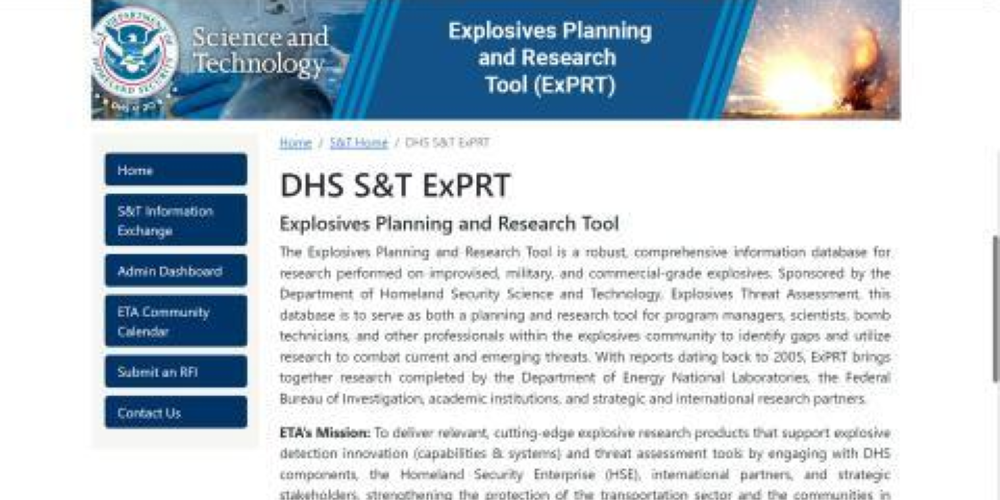Every second counts when responders encounter an explosive device, and critical decisions must be made quickly in order to neutralize the threat while also ensuring the security of civilians, property, and the responders themselves. Knowledge is power, as they say, and the Science and Technology Directorate (S&T) will soon roll out a state-of-the-art database that will give the Department of Homeland Security (DHS) subject matter experts (SMEs) and frontline personnel access to information that is essential to mission success. ExPRT will provide SMEs, first responders, and members of the explosives research community with quick and easy access to relevant scientific and research, development, test, and evaluation data spanning from the early 2000s to the present.
“Over the past 20 years, DHS and its partners have invested more than $60 million in basic and applied research that has resulted in critical findings and the development of groundbreaking tools and technologies that have helped to prevent or mitigate countless explosive threats,” said S&T’s Explosives Threat Assessment (ETA) Program Manager Dr. Anna Tedeschi. “However, as we look to the future of this field, we’ve run into a new challenge: finding a way to effectively organize, compile, and share this information to ensure ongoing collaboration, avoid conducting repetitive or unnecessary studies, prevent institutional memory loss, and to strategically plan and budget program investments in future research to close knowledge or technology gaps.”


